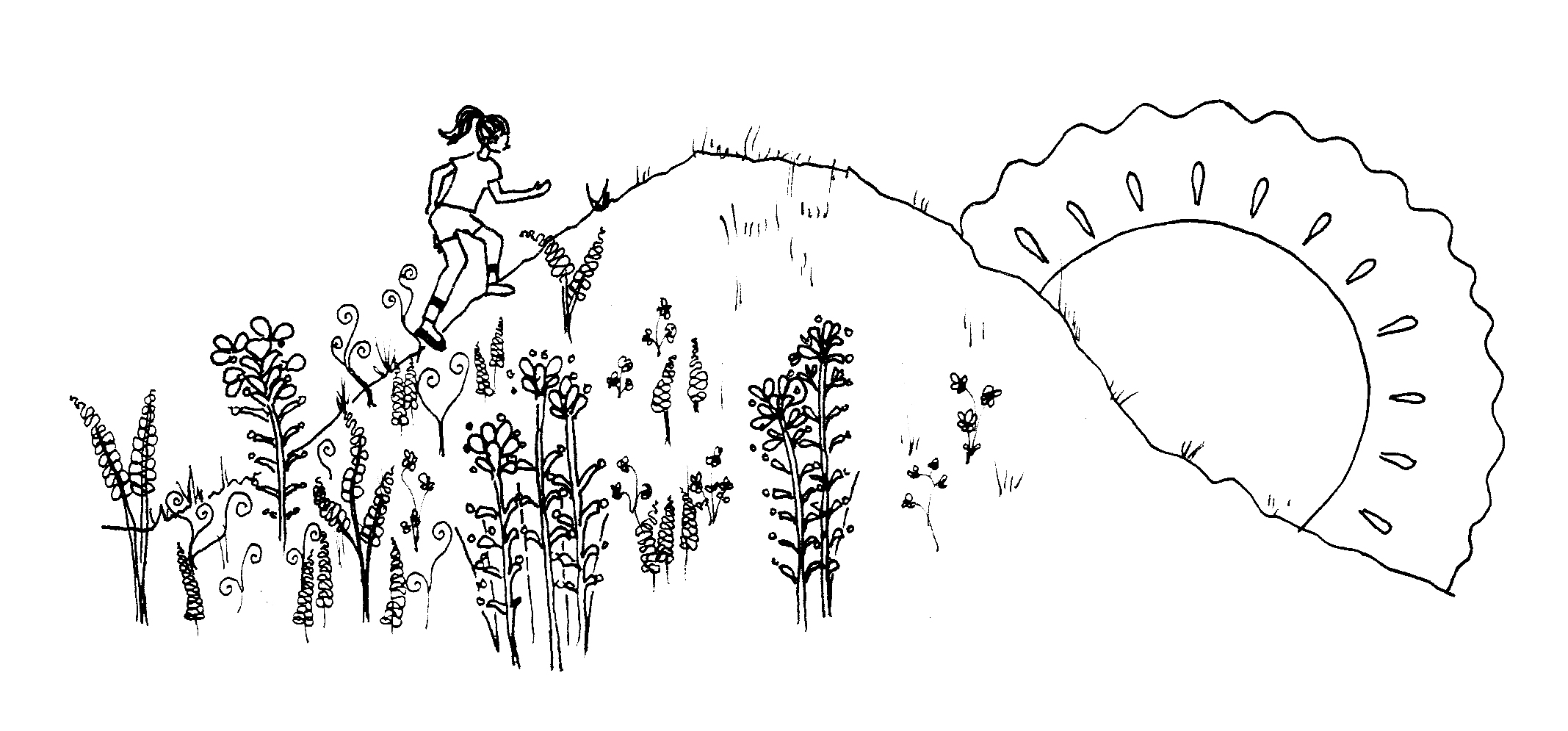Learning from failure: remembering high school cross country lessons post-graduation
May 5, 2017
 This
piece represents the opinion of the author
.
This
piece represents the opinion of the author
.
 Sophie Washington
Sophie WashingtonI will end with a story because it’s an easy way to say goodbye. In ninth grade, I joined the cross-country team because my best friend joined the cross-country team. This is how high school works. I’d spent the summer portraying an elephant in a play about a killer elephant (based on true events) and, thus, all traces of athleticism had vanished. Cross-country made no cuts.
My friend and I spent the majority of the season plotting feigned injuries or envying lazy dogs on the sidelines. We weren’t the type of friends who pushed each other. We possessed a shared and serious apathy. We were also slow. To put our pace in context: my father once walked along the course—patiently cheering—as I ran beside him. At the same speed. I remind you that I was racing and he was wearing jeans.
Our optimism peaked mid-season when our coach, Sheerdog, approached us unexpectedly. Approaches from Sheerdog were generally unexpected because we contributed less than nothing to the team—rarely optimism, sometimes snacks. Sheerdog told us to look forward to our next race.
“This is a good course for you two,” he said. “You’re Muscle Runners.”
My friend and I nodded and pretended to know what Muscle Runners were. I assumed it was some official racing term. The possibility of success thrilled me. I’d always longed for one of those movie scenarios where I’d try out a hobby and discover I was a prodigy (like the opposite of “Elf”). It wasn’t my fault I’d been slow before—I just hadn’t found the right course.
We were only able to understand our nickname after racing. Muscle Runners: basically a nice way to say we were slow. Like, so slow that in a hill-situation we might actually have an advantage because we were already going slow enough that it was physically impossible to slow down, and maybe by that warped logic we would beat someone. Sheerdog had conned us. Our team found the nickname hilarious. We finished at the back of the pack, no surprises.
I used to be someone who was easily embarrassed. I worried at cross-country races. I worried when I wore a bold shirt. I worried when my mom rode the saddle at Clyde’s Roadhouse Bar & Grille. I spent my childhood avoiding unfamiliar activities so as to evade humiliation. I cared deeply about what others thought of me. My dad always told me to embrace embarrassment, to enjoy failure—it was the only way to improve. I resented this advice because my dad was good at everything. It seemed easy for him to say. But he said it anyway, often.
I came to Bowdoin hopeful. Hopeful I would find friends and hobbies and myself. Hopeful I would find them easily. Instead, I signed up for a lot of activities and stuck with none of them. I auditioned for—and was rejected from—multiple musicals. I quit an a capella group. But I learned to stop taking myself too seriously. Yes, it turns out dads are right: failures can be educational even when they don’t result in triumph. I found humor in my embarrassments, memories in my mistakes. I found humility and courage.
It’s a scary time to be graduating. I’m not exactly happy about it. I like the cozy haven of my Tower bedroom, the slow elevator to Thorne. I know this campus, so I’m comfortable. It’s easy to feel confident when I’m safe. Next year, however, is a mystery. The rest of our lives are mysteries. I miss childhood. I miss sunsets on swing sets, the invisible monsters under my bed. I miss Bowdoin already, but I can’t stay here.
Next month, I will be teaching children fractions and grammar. Next month! Last month, I watched my mother set up my bank account. I will make mistakes, many mistakes. I will probably spend some weekends eating cheesy bread under the covers, screaming “I don’t know what to do!” I will probably have my Blankey wrapped around my shoulders. But I think that’s OK. The first time doing anything will be hard. The first time I coxed for my high school’s crew team, I crashed into a bridge. The second and third time will be hard, too. Computer science and jogging will always be hard. But that doesn’t mean we should back away.
I hope you will give yourselves permission to fail, permission to find humor in darkness, and empathy in mistakes. I hope you will let yourselves be silly and scared and bold. We are lucky our concerns are so small. I hope you each embrace your Muscle Runner. Metaphors are easy to live in. Real life is messy and rewarding.
It’s too early for me to understand how much Bowdoin has given me. I am very grateful for those who have made me laugh, for those who have reminded me what is really important. I urge everyone to prioritize your hopes, not your fears. I urge you to remind me of this next fall when I question myself. Thank you to anyone who has read my tangential non-opinions every other week. I am so lucky for you and for the memories.

Comments
Before submitting a comment, please review our comment policy. Some key points from the policy: